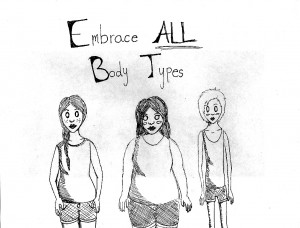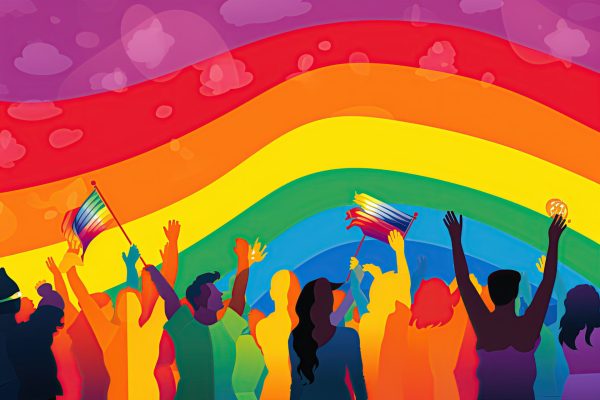How America’s sex education system is failing us
It’s a common complaint from students that the information we’re learning in school won’t help us in the “real world.” While most adults may not have to solve a calculus problem or analyze a metaphor on a daily basis, everyone will be faced with choices about sex and relationships. This is where sex education comes in, to give us the information and skills we need to make better choices. Unfortunately, the current system is ineffective, based on morals rather than facts and leaves out crucial information.
In my opinion, the role of a sex education class is to empower students to make healthy choices in regards to sex and relationships, and give them the tools they need to do so. To a degree, this does happen, although the information is often filtered through a particularly unhelpful perspective. There is often a moral element to the lessons that implies that having sex makes you a bad person. Even worse, only 13 U.S. states require the information taught in sex education to be medically accurate. As John Oliver said in his Last Week Tonight episode on the subject, “This is crazy, you wouldn’t accept a history class not being historically accurate.” It’s absolutely essential to teach students about the risks and consequences of sexual activity, but it should be from a purely scientific perspective. Instead of that, students are told that engaging in sexual activity makes them less of a person.
When I took Health during my sophomore year, one of the last days of class featured a demonstration involving two roses. Both started off whole, but then my teacher started pulling petals off one of the roses, explaining that a petal was taken away every time you hooked up with somebody. In the end, one rose still looked full and beautiful, while the other was just a sad stem. These kinds of demonstrations are by no means exclusive to DHS. All across the country, people who have sex are being compared to cupcakes with the frosting licked off, chewed-up gum and used toothbrushes. No matter what the exact details of the allegory are, the message is clear. Having sex before marriage makes you dirty, used-up, and less of a person.
No one, especially not people tasked with educating us and shaping our futures, has the right to portray an arbitrary moral judgment like that as a fact. They should absolutely teach us that abstinence is the safest option and that monogamy does reduce chances of STI transmission. What they shouldn’t be able to do is tell us that not remaining abstinent until marriage makes us bad people. Linking abstinence to purity has historically been a tactic used to shame women about the choices they make regarding their bodies. Despite all the progress made, there is still a lot more pressure for girls to avoid sexual activity, at the risk of being seen as a “slut”, and therefore, less of a person. While the demonstrations may not have specifically referenced gender, it’s pretty clear that women are the ones who are likened to roses and cupcakes.
Not only do they perpetuate sexist ideas about virginity, the rhetoric about sex making people “impure” is hugely damaging to people who have been the victims of sexual assault and rape. On top of all the other trauma that has occurred, being told that the assailant has stolen something “precious” from you can be hugely psychologically damaging. When you tie someone’s worth to their sexual history, you are telling people who have been victimized, through no fault of their own, that they are now bad compared to those who have still retained their magical virginity flower. Hopefully, it should be obvious how messed up that is. By incorporating this moral code into sex education curriculum, teachers are shaming victims of sexual assault for a traumatic experience that was completely out of their control.
In addition to promoting victim-blaming ideas, teaching information based on a moral code can end up excluding some of the most marginalized students. A survey of LGBTQ students done by GLSEN found that only about 5 percent of students reported being taught positive information about LGBTQ people or issues in their health classes. This lack of information is especially dangerous, considering that, according to the CDC, the stresses experienced by LGBT youth also put them at higher risk for sexual behaviors that place them at risk for HIV and other sexually transmitted diseases. Yet, the people who are being disproportionately affected by negative sexual outcomes are very often excluded from the curricula meant to protect them. Worse, some states have laws that specifically vilify LGBTQ students. According to the New York Times, “Arizona mandates that no school district teach sex ed that “portrays homosexuality as a positive alternative life-style” … In Alabama, classes must emphasize, “in a factual manner and from a public health perspective,” that homosexuality is “not a lifestyle acceptable to the general public”.” These kinds of hateful values being included in the curriculum not only fail to contribute to student’s education, they also promote negative stereotypes and encourage discrimination. If schools want to promote health and safety for all their students, they need to put effort into making sure that sex education lessons are inclusive and relevant to LGBTQ youth.
I believe that people should absolutely take their own values and religious beliefs into account when making decisions about their sex life, but the job of the public education system is not to provide a moral conscience. It is completely unacceptable for schools to filter such crucial information through the lens of moral values. This is especially problematic since these values promote slut-shaming, sexism, and homophobia. By allowing sex education to arbitrarily decide to exclude certain students and vilify others, and not emphasizing the importance of factual information, we are preventing from fulfilling its basic purpose, which is to educate.
Emma Pinsky is a senior and the managing editor of Deerprints. She joined Deerprints as a sophomore to pursue her interest in writing and it quickly became...








Nikoletta Antonakos • Nov 2, 2015 at 8:42 pm
This is a terrific article – a must-read. One detail that I looked for was mention of Erin’s Law. If you are not aware of it, I suggest starting with two sources, one wonky from the records of the State of Illinois (first page is a good start) http://www.isbe.state.il.us/reports/erins-law-final0512.pdf,
and the other from the realm of pop-culture of the “Oprah Show” via the Huffington Post
http://www.huffingtonpost.com/2014/02/04/erin-merryn-sexual-abuse-oprah-show_n_4718838.html. Please be aware that these articles mention child sexual abuse, and therefore may be difficult to read.